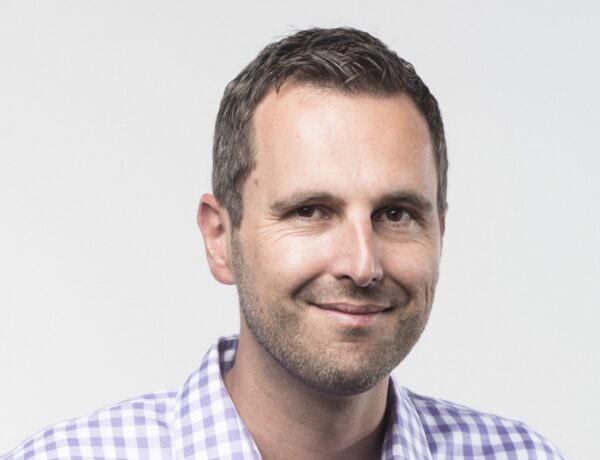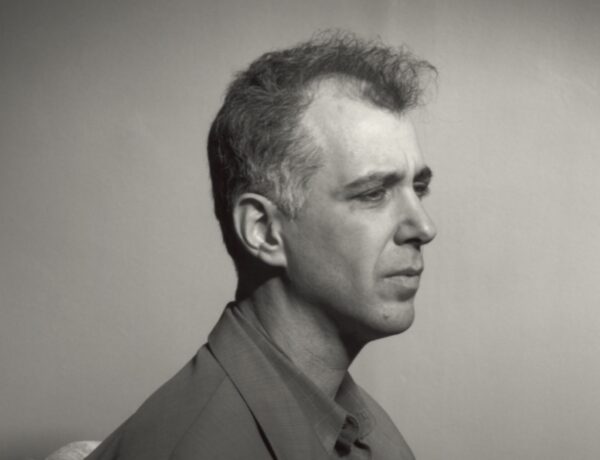Geoff Becker is the author of the novel Hot Springs and the collection Black Elvis, as well as the novel Bluestown and the collection Dangerous Men.
His awards and honors include: the Drue Heinz Prize for Literature, the Flannery O’Connor Prize for Short Fiction, The Nelson Algren Award, an NEA Fellowship, inclusion in the Best American Short Stories anthology, five Maryland Arts Council Awards, and the Parthenon Prize for Fiction. He lives in Baltimore, Maryland, and teaches writing at Towson University.
Hi Geoffrey, welcome to Famous Writing Routines, we’re so glad to have you here with us today! Your collection Dangerous Men was published by the University of Pittsburgh Press in 1995. Looking back on it now, what do you think sets it apart from your more recent work?
Dangerous Men was my first book. I had spent time in New York trying to have a career as a musician and the stories in there, some of them, came out of that experience and that world. I suppose those elements might set it apart. I’m still interested in the same themes I was thirty years ago. Also, I still like to write things set before everyone carried cell phones and had Instagram accounts.
You’ve had a successful career as an author, with multiple awards and honors, including the Flannery O’Connor Prize for Short Fiction. Can you tell us a little about your experience navigating the literary world?
The literary world has changed a lot since I first started trying to figure it out, in many ways for the better, and particularly in terms of diverse voices getting the attention they deserve. I started out knowing nothing at all about how it all worked. I know more now, but some things remain mysterious. I hope I’ve earned whatever successes I’ve achieved, but I also understand that there’s always an element of luck at play. Mostly, I’ve tried to keep my head down, continue to read and learn from others, and keep writing.
You’ve lived in several different places, including New York, Iowa, and now Baltimore. How has living in different parts of the country influenced your writing?
You left out Colorado, Arizona, and Georgia! And my home state of New Jersey. I was rootless for a long time, and I’m sure that influenced my work. I love learning new things and meeting new people; all the relocating I did over the years was educational. I think it’s important to get outside of your comfort zone. Most New Yorkers would do well to spend a couple of months in the small-town Midwest. Similarly, it wouldn’t hurt folks from the rural south to come hang for a while in Baltimore. People here are just as friendly.
After moving to New York in the 1980s, you played guitar in various bands and performed at venues like the Lone Star Cafe and O’Lunney’s Country Music City. How do you think your experiences in music have influenced your writing?
This is an excellent question. As I said earlier, I’ve drawn some stories straight out of experiences I’ve had playing in bars or blues jams (I’ve been the host for two jams, one in Iowa and one here in Baltimore). I’m still an active musician; I play every day at home, and I’m also in a local band that does around ten gigs a year. I get similar rewards from music and writing. They are lifelong pursuits and I keep trying to improve at both. Music is more social though, and sometimes you need to get out of the house.
As a writing professor at Towson University, what do you see as the biggest challenge for your students when it comes to writing fiction?
Probably their phones. I have amazingly talented, thoughtful students. Many of them are big readers. But many are not, and their frame of reference for storytelling is almost entirely visual (movies and TV or video games). Everyone’s attention span has been reduced. I know mine has. I used to routinely read long books and now I rarely do. But I watched every episode of Better Call Saul and thought it was as good as any novel. Literary writing isn’t going away, but it may be on its way to becoming a niche art.
What does a typical writing day look like for you?
A good one? Get up, walk the dog, eat breakfast, bring coffee up to my office on the second floor of our house. Write for a couple of hours, break for lunch. Print out because I don’t edit effectively on a computer screen. Try to work for another couple of hours. That’s usually it—I can’t work more than four hours in a day, at least not the typing part. If it’s nice outside, I might try to go for a run. I find that running can be a good way to sort through my thoughts and distract my conscious mind. I’ve often solved problems or gotten ideas during decidedly non-working moments of the day. In the grocery store. In my sleep. While sitting in a dark theater waiting for a movie to start or at a poetry reading (that happens to me a lot). The writer part of my brain is always on duty, skulking in the shadows with a pen and notebook.
Can you describe your approach to writing a new book or story? How do you typically begin the process of putting your thoughts on paper?
A recent story of mine, “Six Haircuts”, began with the title—my wife suggested it. So, that’s one way. Other times, I start with a premise—something that strikes me as amusing or just seems to have potential. “What if…” etc. Once I have an idea, I consider my point of view. First person? Third? Through the eyes of which character? You must make choices, and you have no idea which ones are best, so at some point, you just set sail.
In your experience, what role does revision play in your creative process? How do you approach revising your work, and what changes do you typically make during this stage?
I’ve been lucky enough to write one or two decent stories that came out right the first time. At the other extreme, I’ve got a couple of stories I’ve been revising for about ten years now, which I realize is ridiculous. I should give up. But then I read them over and I think there is something there I really like. The places I tend to revise the most are beginnings and the endings. And then I sometimes change them back to what they were in the first place.
As a successful author, how do you balance the creative freedom of writing with the pressure to produce work that meets commercial expectations?
I’ve published four books, so I guess that does make me successful. But I’m not a commercial success and I make my living as a college professor, so I’m not subject to commercial expectations. I feel completely free to do what I want. It’s very nice.
If you could have a conversation with any author throughout history about their writing routine and creative process, who would that person be?
I’d love to have met Denis Johnson—I admire his work. It would be fun to hear what he had to say on this subject. And John Williams, who wrote Stoner. His books are all so different from each other. I’m a great fan of Flannery O’Connor but I think I’d be too intimidated to ask her any questions.
I’d love to know about the books you’re reading at the moment. What have been some of your favorite reads?
This will sound pretentious, but I’m reading Ulysses. I read it long ago for a class in college, but I quit without finishing. It’s possible I’ll quit again—who knows? I’m really loving it this time, at least so far. My family took a trip to Ireland recently and that was the impetus. Having walked around Dublin some myself, I can imagine Leopold Bloom’s journey more clearly. It’s funny, too. There was a story by Jane Pek in last year’s BASS anthology that stuck with me for its originality and imagination—it was a love story narrated by a Chinese spirit, with celebrity cameo appearances by Arthur C. Clarke and Oscar Wilde. Pretty cool.
Affiliate disclaimer: Some links on this website are affiliate links. We may earn a small commission if you make a purchase through these links, but only promote products we truly believe in. We disclose affiliate links and give honest reviews.



No Comments